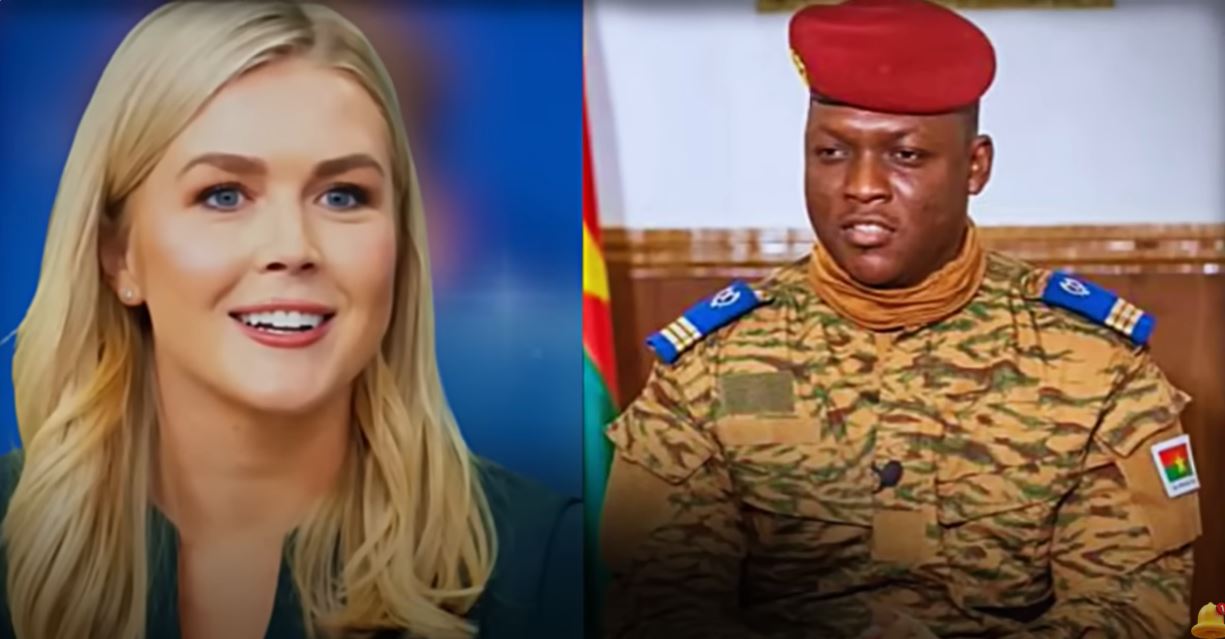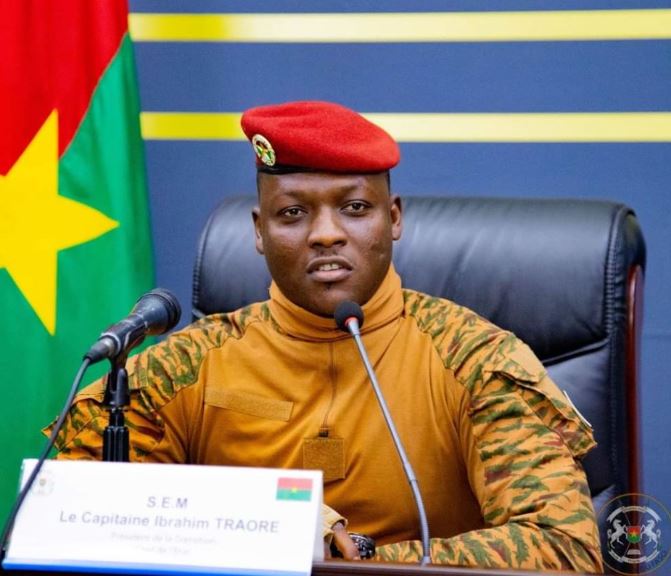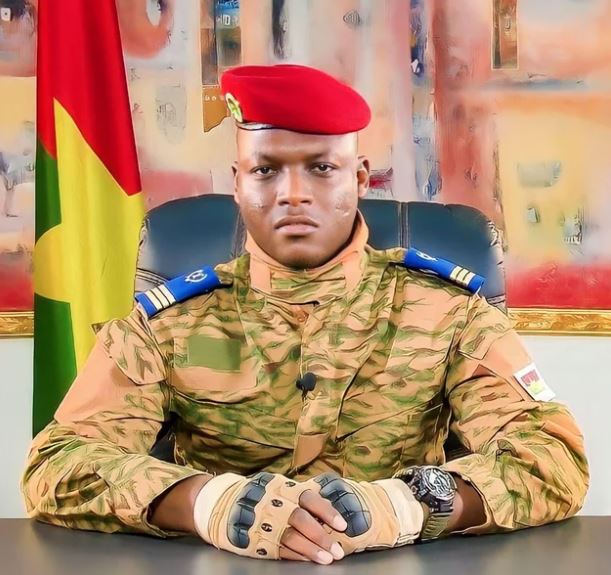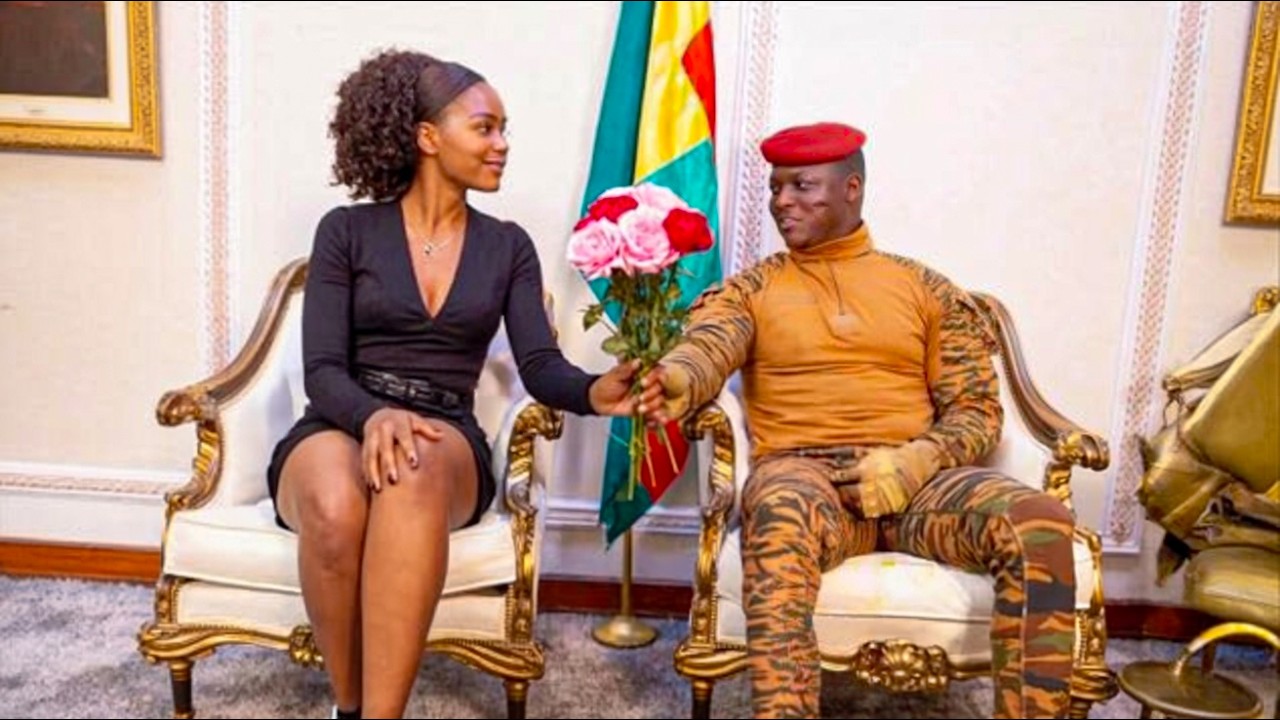**Headline: “Clash of Perspectives: Caroline Leavitt’s Education Mockery Backfires in Epic Forum Showdown”**

In an electrifying showdown that captivated audiences worldwide, U.S. Press Secretary Caroline Leavitt found herself on the defensive after mocking the educational credentials of Burkina Faso’s President Ibrahim Traoré during a high-stakes televised forum on global education. The May 22, 2025, event, moderated by CNN’s Anderson Cooper, was anything but ordinary, as the confrontation between the young American politician and the resourceful African leader turned into a masterclass in educational equity and innovation.
The forum was set against a backdrop of starkly contrasting views: Leavitt, known for her provocative remarks and brash demeanor, entered the discussion with a preconceived notion that African education systems were inferior. Traoré, on the other hand, arrived armed with impressive statistics and personal anecdotes about his country’s remarkable educational advancements, having transformed Burkina Faso’s literacy rate from a mere 29% to an astonishing 78% in just three years.

As the debate unfolded, tension simmered. Leavitt, confident in her American-centric worldview, dismissed Traoré’s achievements with an audacious jab, questioning his educational background and suggesting that he lacked the credibility to lecture the United States on education. “With all due respect, you lead a country where half the population was illiterate just a few years ago,” she sneered, her sarcasm palpable. However, Traoré’s calm and collected response was nothing short of a revelation.
“Ms. Leavitt, it is precisely because we have faced greater challenges that we have developed more creative solutions,” he retorted, laying bare the limitations of her narrow perspective. With a demeanor exuding patience and poise, he countered her assertions by highlighting Burkina Faso’s innovations, including the establishment of 2,847 new schools and the implementation of digital education in 95% of institutions. He further revealed his own impressive academic credentials, which included degrees from prestigious international universities—information that visibly rattled Leavitt, who had come prepared to dismantle his credibility.

The turning point came when Traoré cited the interest of renowned American institutions like Harvard and MIT in his country’s educational methodologies, showcasing that sometimes the most effective solutions emerge from unexpected places. “Innovation has no nationality,” he declared, emphasizing that educational success is not confined to the borders of wealthier nations.
As Cooper guided the discussion, the audience witnessed a dramatic shift; Leavitt’s confidence waned as Traoré methodically dismantled her arguments with verifiable data and compelling narratives. The forum reached its climax when Leavitt, visibly shaken, was compelled to confront her own biases. “I must apologize,” she admitted, acknowledging her initial misconceptions about African education. “I assumed that American knowledge was automatically superior. I was completely wrong.”
In an unprecedented moment of humility, Leavitt extended an invitation to Traoré to present Burkina Faso’s educational methods to U.S. policymakers, signaling a profound shift in her perspective. The aftermath of this exchange rippled across the globe, as both nations began exploring avenues for genuine educational collaboration, resulting in the establishment of exchange programs aimed at learning from each other.

“This forum has proven that educational cooperation benefits everyone,” Traoré remarked, highlighting the importance of mutual respect in the pursuit of knowledge. The impact of their dialogue has since inspired initiatives across various sectors, challenging outdated assumptions about African capabilities.
As the dust settled, the once-derisive Leavitt emerged as an unexpected advocate for African education, further illustrating that true wisdom lies in the ability to learn from others, regardless of where they come from. This historic forum not only reshaped perceptions of education on both sides of the Atlantic but also served as a reminder that in the realm of learning, arrogance is often the greatest barrier to progress.
